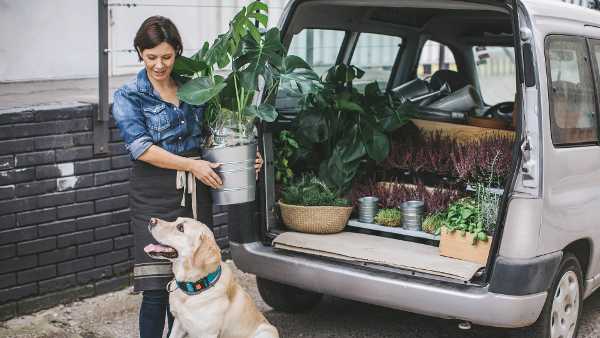Sustainable travel: how to encourage your employees
- How to
- Edited 9 October 2024
- 2 min
- Managing and growing
- Sustainability
Sustainable travel is becoming more and more of a necessity. In a few years' time, you will no longer be able to enter many cities with your petrol or diesel car. Would you like to encourage your staff to start travelling by bike, public transport or electric (shared) cars? These 5 tips will ensure a smooth transition.
Business driving is becoming increasingly expensive and complicated. Think of high fuel prices, environmental zones and zero-emission zones in cities, and crowded roads. With sustainable commuting, you have no or less trouble with these obstacles. And it is often cheaper. But how do you ensure a smooth transition? People who value their comfortable lease car probably prefer not to board a packed train compartment every day. So, involve your employees in your plans, listen carefully to wishes and fears, and reward sustainable choices.
1. Choose your moment
Are there road works in the vicinity of your business or are you moving to new premises? Switch to sustainable transport at logical moments like these. For example, travelling by public transport becomes much more attractive if your new premises are next to a train station.
2. Let your staff have their say
Talk to your employees and find out what their wishes are. Also discuss doubts and practical objections. Employees may be concerned about longer travel times by public transport, for example. You could offer them first-class season tickets, for instance. Your staff can then use travelling time as working time.
Ask all your employees for their opinions on sustainable travel. Even those who are less enthusiastic. Take your employees seriously and include their ideas in your approach. For instance, do bus or train times not fit with your shop opening hours? If you can, adjust your opening hours to make travelling by train or bus more attractive.
3. Reward sustainable travel
Reward sustainable travel and make your staff enthusiastic. Consider, for instance, a savings system (in Dutch). You earn points for every kilometre you cycle. The points can be exchanged for discounts or products. Or turn it into a competition with the whole company. Who got on their bike most often? Who travels the most sustainable kilometres per month? At the end of the year, name the winner as ‘greenest traveller’ and provide a nice prize.
Travel company Better Places goes even further in rewarding sustainable travel. ‘We offer our staff two extra days off,’ says manager director Saskia Griep. "The idea behind it is that employees can take a holiday by train. After all, a train ride generally takes longer than a flight. I hope that by choosing the train privately as well, they will become even more enthusiastic about sustainable transport."
4. Go for tailor-made solutions
Do not choose just one sustainable solution for all your staff, but look at personal situations. A good solution for one employee, may not work for another. So, first map your employees' travel behaviour. The Mobility Scan (in Dutch) will help you do that. The tool shows the sustainable travel options of each employee. You also get insight into what the various options mean for travel time, costs, CO2 emissions and more.
Better Places mainly reimburses travel by public transport, but looks closely at individual employees. "Our interns have to come to Leiden from Wageningen. We count time on the train as working time. And they are allowed to travel outside rush hours. That is how we make train travel attractive for them,’ Griep says.
Do not forget yourself, either. Griep does not have a car himself and travels to work by train. "You are much more credible as a director if you also travel sustainably yourself. I want to show people that travelling by train is not difficult, expensive or annoying at all."
5. Make sustainable travel easy
Make the switch to sustainable travel easy for your employees. For example, do your employees want to come to work by electric car or electric bike from now on? Make sure there are enough parking spaces with charging facilities. And let train passengers use their travel time as work time. That way, you make the threshold for taking the train a lot smaller.

